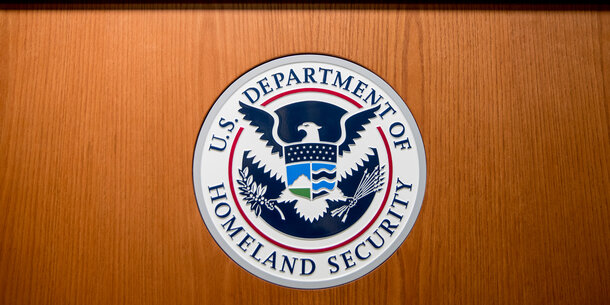The Brennan Center has sued the Department of Homeland Security to force the government to hand over records on its use of various social media surveillance tools. The department offered an inadequate response to our Freedom of Information Act request seeking documents about products from three companies: ShadowDragon, Logically Inc., and Voyager Labs.
DHS already gathers and uses information from social media for purposes ranging from situational awareness to automated risk assessments of travelers to efforts to predict threats of terrorism and other violence. The agency’s expanded use of social media monitoring tools will heighten existing risks to privacy and to freedom of speech, expression, and association, affecting Americans, immigrants, and foreign travelers while making scant contributions to national security.
While details about the agency’s use of these tools are murky, recent media coverage and contracting data shed some light. Journalists revealed last fall that U.S. Immigration and Customs Enforcement had purchased licenses for two ShadowDragon products — OIMonitor and SocialNet — at least three times.
ShadowDragon’s marketing materials claim that these products are underpinned by the company’s vast cache of historical and real-time data pulled from throughout the internet, including social media sites, allowing users to detect threats using keywords to sift through the data and “discover and visualize networks of bad actors.”
Similarly, the Wall Street Journal revealed last year that DHS was in at least preliminary conversations with Logically Inc., which advertises that it uses social media to analyze trends and identify “emerging narratives.” DHS announced that it intended to focus on these “online narratives” — which are ill-defined — in the wake of the January 6 Capitol insurrection, despite the fact that the government had ample advance information, including from social media, about the likelihood and nature of the attack. There is also evidence that focusing on “narratives” will yield little of value while undermining civil rights and civil liberties.
Finally, while it is unclear whether DHS has engaged with Voyager Labs, there is reason to believe the agency would have significant interest in the company’s services. The Brennan Center first learned about Voyager Labs through our freedom of information lawsuit against the Los Angeles Police Department. The documents we obtained from the LAPD revealed that Voyager Labs promises its law enforcement clients access to vast amounts of information about individuals on social media and leverages its purported analytical capabilities to make inferences about social media users’ networks and the strength of their ideological beliefs. Notably, Voyager Labs has marketed its products as useful to DHS issues, such as border security.
As the Brennan Center has repeatedly warned, social media surveillance by DHS threatens Americans’ First Amendment and privacy rights. Government officials can glean intimate details about a person through their social media presence, such as their religious beliefs, familial networks, sexual orientation, and more. Knowledge that the government is surveilling online activity and mapping interpersonal networks may also impact what people say and whom they interact with on social media, chilling their speech and association. Moreover, DHS has used social media to surveil activity surrounding protests, including demonstrations against racial injustice and police brutality as well as protests against the Trump administration’s family separation policy and other anti-Trump demonstrations.
Further, the department’s reliance on third-party tools to surveil social media will likely disproportionately harm racial and religious minority groups. Given the decades-long history of discriminatory surveillance by DHS and other federal agencies against Muslim and Arab American communities in particular, these tools could further entrench the biases that put minority groups at risk of increased scrutiny.
Indeed, Voyager Labs’ pitches for the LAPD advertise that its tools could automatically flag social media users as threats because of their perceived “ties to or affinity for Islamic fundamentalism or extremism,” based on such tenuous evidence as “pictures with Islamic themes” that indicate “pride in . . . [one’s] Arab heritage.”
The use of private companies to conduct social media monitoring poses additional risks as they are not subject to the same oversight and regulations as government agencies, and the government itself may have little visibility into how the companies it hires go about their business.
Finally, there is little evidence of the practice’s effectiveness. The agency’s own experts and assessments have raised serious doubts that social media surveillance is useful to unearth information pertinent to the department’s law enforcement or national security mandate.
That’s why the Brennan Center has called for reform of social media surveillance at all levels of government. There should be transparency in how government agencies monitor social media, clear and enforceable standards and limitations on what can be used and when, and reporting about the extent and limitations of broadscale social media monitoring. These safeguards are especially important in light of the government’s history of discrimination and overreach when it comes to domestic spying.
The Department of Homeland Security has declared that the protection of civil rights and civil liberties is “elemental” to its work. The Brennan Center’s new FOIA lawsuit aims to assess the department’s commitment to those values by shining a light on its social media surveillance efforts.







